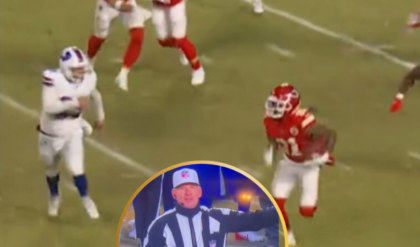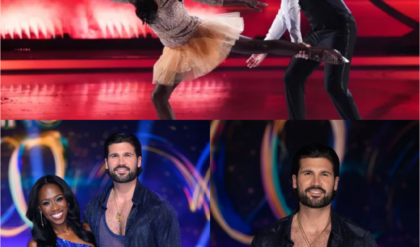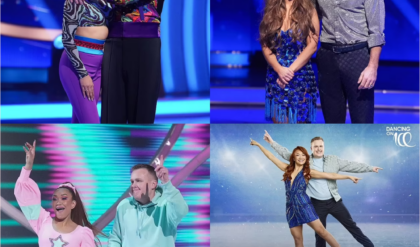Pimp C, the late rapper and member of the influential Southern hip-hop duo UGK, was known for his unfiltered opinions and bold statements about the music industry. One of his most provocative claims was regarding the presence of undercover rappers and the prevalence of down-low (DL) men within the industry. This assertion, made years ago, has gained renewed attention in recent years as discussions about sexuality, authenticity, and the complexities of identity in hip-hop continue to evolve.
The hip-hop community has long struggled with issues of masculinity, sexuality, and authenticity. Pimp C’s remarks about undercover rappers shed light on the hidden lives some artists lead, grappling with their sexual identity while navigating a culture that often penalizes deviation from heteronormative standards. The pressure to conform to a traditional masculine archetype can lead many artists to suppress their true selves, creating a façade that may not only impact their personal lives but also their artistry and relationships within the industry.
Pimp C’s comments were not just personal reflections; they were a commentary on a broader cultural phenomenon. Many artists, particularly in hip-hop, feel compelled to project a hyper-masculine image, which can be deeply rooted in the genre’s origins and its connections to street culture. This hyper-masculinity often marginalizes those who do not fit the mold, perpetuating a culture of silence and shame around alternative sexual identities. The fear of being outed or labeled can lead to a lack of authenticity in their music and public personas, resulting in a disconnect between who they are and how they present themselves.
Over the years, numerous reports and rumors have circulated about the sexual identities of various rappers, often leading to speculation and gossip that can overshadow their musical contributions. The stigma surrounding being openly gay or bisexual in hip-hop remains a significant barrier, causing many artists to hide their true selves. The industry has historically been unwelcoming to those who do not fit the traditional mold, leading to a culture of secrecy and deception that can be damaging to both the individuals involved and the community as a whole.
The conversation about DL men in hip-hop is not new, but it has gained momentum as more artists begin to challenge the status quo. The rise of openly queer artists in hip-hop, such as Lil Nas X and Tyler, the Creator, has sparked discussions about representation and acceptance in a genre traditionally dominated by heteronormative ideals. These artists have embraced their identities, using their platforms to advocate for authenticity and inclusivity, encouraging others to express themselves freely without fear of judgment.
Despite this progress, the legacy of Pimp C’s remarks still resonates with many who are aware of the ongoing struggles within the industry. The fear of being ostracized or rejected can deter artists from embracing their true identities, perpetuating a cycle of silence. The consequences of this can be profound: not only for the artists themselves but also for their fans, who may feel alienated or misrepresented by a culture that claims to celebrate individuality while simultaneously enforcing rigid standards of masculinity.
Moreover, the issue of undercover rappers extends beyond personal identity; it touches on the integrity of the music itself. When artists create personas that do not reflect their true selves, it can lead to a lack of sincerity in their work. Fans often gravitate towards authenticity, seeking connections with artists who share their struggles and experiences. The disconnect between an artist’s public persona and private life can create a chasm that alienates fans and undermines the emotional power of their music.
As conversations around mental health and well-being in the hip-hop community gain traction, the impact of living a double life is becoming more evident. The pressure to conform to societal expectations can lead to significant mental health challenges, including anxiety, depression, and substance abuse. Artists who struggle with their identity may find solace in destructive behaviors, further complicating their lives and careers. This cycle of pain and secrecy not only affects individual artists but also reflects larger systemic issues within the industry that need to be addressed.
The music industry has a responsibility to create a more inclusive environment where all artists feel safe to express their identities. This includes challenging the stereotypes associated with masculinity and sexuality, encouraging authenticity, and supporting artists who may feel marginalized. The rise of social media has provided a platform for many to share their stories, fostering a sense of community and solidarity among those who may have felt isolated for far too long.
Moreover, the increasing visibility of LGBTQ+ artists in hip-hop is slowly reshaping the narrative around sexuality in the genre. By challenging traditional norms and celebrating their identities, these artists are paving the way for future generations to embrace their true selves without fear. This shift not only enriches the genre but also broadens the scope of what hip-hop can represent, allowing for a more diverse range of voices and experiences.
Pimp C’s legacy is one of unapologetic honesty. His statements about undercover rappers and DL men serve as a reminder of the complex dynamics at play in the hip-hop industry. As more artists come forward and share their stories, it is essential to continue this dialogue,
Watch video:
News
Lions GM not concerned over closed Super Bowl window despite coaching exodus
As Detroit Lions general manager Brad Holmes spoke about the playoff exit to the Washington Commanders in the divisional round of the postseason, he now speaks about the foreseeable future. After the Lions lost offensive and defensive coordinators Ben Johnson and Aaron Glenn to…
NFL Makes Huge Jared Goff Announcement After Career Season
Jared Goff and the Detroit Lions capped off the season with a 15-3 record. The Lions were one of the most dominant teams in the NFL throughout the season and entered the playoffs as the No. 1 team in the NFC standings. Despite…
A Completed Trade Between the Canadiens and Devils Just Took an Unexpected Turn
We have an interesting development following a trade between the Montreal Canadiens and the New Jersey Devils. As you know, last March, Kent Hughes traded Jake Allen for a conditional 3rd-round pick, which could become a 2nd-round pick if Allen plays more…
Jake Evans Finally Reveals His Contract Demands, and the Details Are Surprising
We have some new information regarding the much-talked-about contract situation of Montreal Canadiens forward Jake Evans. I believe everyone agrees on keeping Evans with the Canadiens, but of course, it all depends on the price. Well, we finally have news about…
St-Louis Reveals Owen Beck’s Replacement for Tonight’s Game and Makes Two Announcements
As we mentioned this morning, Montreal Canadiens head coach Martin St-Louis made the decision not to hold a morning skate. Therefore, we had to wait for the press conference of the day to find out about the lineup changes for…
Beautiful Sight Live From Canadiens Practice as Reinforcements Could Join the Lineup Soon
We have news about Emil Heineman for you, thanks to the TVA Sports network. In the last few minutes, the network shared images of Heineman, who was on the ice in Brossard. This means that, while Canadiens players are in Detroit, Heineman…
End of content
No more pages to load











